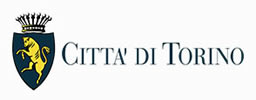Art is an effective language of communication for cultural engagement.
Art reduces physical, intellectual, emotional, mental and social distances between human beings.
Art generates common spaces for original individuality and social encounter.
Art is a form of experience that creates new sensations and reveals new subjectivities.
Art influences change and has the potential to transform the way in which we see and act in the world.
Art is a human need for its existence.
The Mediterranean, the inland sea, has witnessed the birth of human civilizations.
A mosaic of tribes, first settlements, and first cities surrounds it.
It is more than a crossroads. It is where “everything flows”. It is the sixth continent.
Through the Mediterranean people move, travel, navigate, and transmit knowledge, culture, philosophical thoughts, trades of goods, tastes, savoir vivre, arts, beliefs, traditions…
Anew, it is a region of strategic geopolitical importance for multilateral and national interests.
The Mediterranean is a community that extends beyond its borders and Europe incorporates the Mediterranean.
In 1985, BJCEM set out to support the creativity and professionalisation of young artists and creators in and around the Mediterranean, to strengthen the relations between all the actors active in the contemporary cultural and artistic landscape of the region, to encourage peace dialogue, collaborative practice beyond the existing boundaries.
BJCEM brings together 45 partners from 15 countries, including local and national private organisations and public administrations as well as higher education institutions.
BJCEM is a cultural network that develops research, education and multi sector cooperation projects.
BJCEM is a continuous research project targeting young artists. It initiates cultural, social, political, artistic dialogue and scrutinizes the Mediterranean’s multiple horizons.
BJCEM believes that artists and creators must be enabled to experiment with innovative, critical and conceptual content.
BJCEM supports young artists and creators as agents that foster social transformation and critical political thinking.
BCJEM is convinced that cultural exchange and dialogue are a prerequisite to develop new forms of sharing economy, social inclusion and human development.

